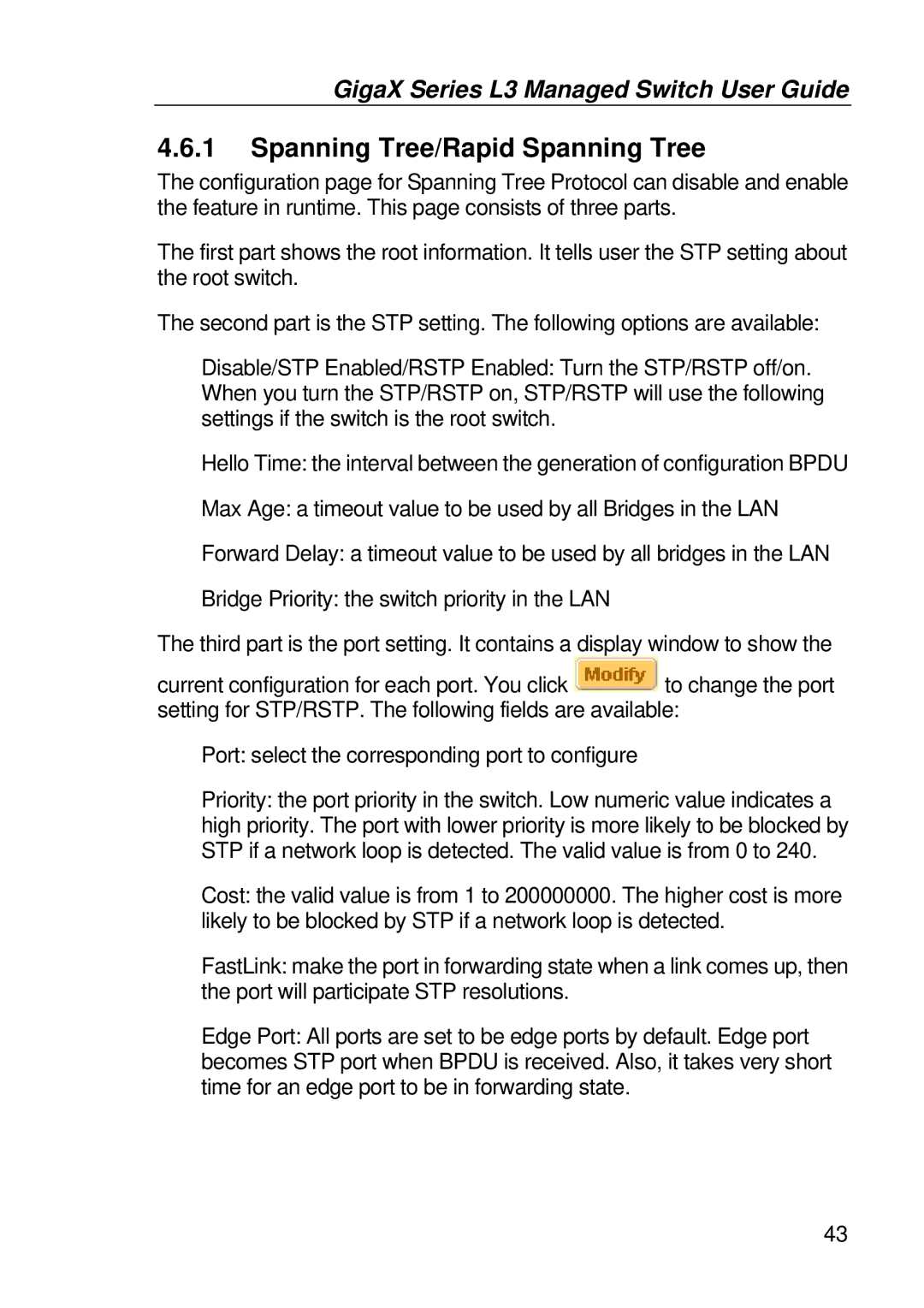GigaX Series L3 Managed Switch User Guide
4.6.1Spanning Tree/Rapid Spanning Tree
The configuration page for Spanning Tree Protocol can disable and enable the feature in runtime. This page consists of three parts.
The first part shows the root information. It tells user the STP setting about the root switch.
The second part is the STP setting. The following options are available:
Disable/STP Enabled/RSTP Enabled: Turn the STP/RSTP off/on. When you turn the STP/RSTP on, STP/RSTP will use the following settings if the switch is the root switch.
Hello Time: the interval between the generation of configuration BPDU
Max Age: a timeout value to be used by all Bridges in the LAN
Forward Delay: a timeout value to be used by all bridges in the LAN
Bridge Priority: the switch priority in the LAN
The third part is the port setting. It contains a display window to show the
current configuration for each port. You click ![]() to change the port setting for STP/RSTP. The following fields are available:
to change the port setting for STP/RSTP. The following fields are available:
Port: select the corresponding port to configure
Priority: the port priority in the switch. Low numeric value indicates a high priority. The port with lower priority is more likely to be blocked by STP if a network loop is detected. The valid value is from 0 to 240.
Cost: the valid value is from 1 to 200000000. The higher cost is more likely to be blocked by STP if a network loop is detected.
FastLink: make the port in forwarding state when a link comes up, then the port will participate STP resolutions.
Edge Port: All ports are set to be edge ports by default. Edge port becomes STP port when BPDU is received. Also, it takes very short time for an edge port to be in forwarding state.
43
